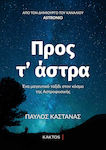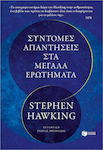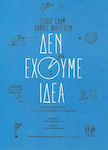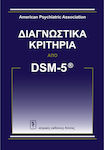from Protoporia
Skroutz Buyers Protection
Set the delivery location to see products according to your choice.
 AustriaEnglish
AustriaEnglish BelgiumEnglish
BelgiumEnglish BulgariaБългарски
BulgariaБългарски CroatiaEnglish
CroatiaEnglish CyprusΕλληνικά
CyprusΕλληνικά CzechiaEnglish
CzechiaEnglish EstoniaEnglish
EstoniaEnglish FinlandEnglish
FinlandEnglish FranceEnglish
FranceEnglish GermanyDeutsch
GermanyDeutsch GreeceΕλληνικά
GreeceΕλληνικά HungaryEnglish
HungaryEnglish IrelandEnglish
IrelandEnglish ItalyEnglish
ItalyEnglish LatviaEnglish
LatviaEnglish LithuaniaEnglish
LithuaniaEnglish LuxembourgEnglish
LuxembourgEnglish MaltaEnglish
MaltaEnglish NetherlandsEnglish
NetherlandsEnglish PolandEnglish
PolandEnglish PortugalEnglish
PortugalEnglish RomaniaRomână
RomaniaRomână SlovakiaEnglish
SlovakiaEnglish SloveniaEnglish
SloveniaEnglish SpainEnglish
SpainEnglish SwedenEnglish
SwedenEnglish
© 20[0-9]{2} Skroutz SA All Rights and Lefts reserved. FAQ | Terms of use | Privacy Policy | Cookie Policy

from Protoporia
Skroutz Buyers Protection

Scientific Books











Scientific Books
Prices are calculated for:Luxembourg, Other Payment Options
In 1981, three Greek scientists, Panagiotis Varotsos, Kaisaras Alexopoulos, and Konstantinos Nomikos, presented the method they had developed for short-term earthquake prediction, known as the VAN method. Immediately after its publication, a fierce controversy erupted within the scientific community regarding the possibility of earthquake prediction.
The controversy was not limited to Greek scientists but became one of the most significant episodes in the international debate on earthquake prediction. The dispute soon exceeded the boundaries of the scientific community, as many of its episodes unfolded in the public sphere. The general public in Greece witnessed scientists disagreeing for the first time through television and newspapers in an intense and charged dialogue.
However, why did this particular dispute arise? It is not uncommon for disagreements to arise among scientists, but not all of them turn into controversies. What factors influenced its development? Were they purely scientific, or did factors outside the scientific process also play a role? What happens when the uncertainty inherent in scientific knowledge becomes visible in the public sphere? How does it affect the public perception of science? What is the relationship between science and politics when the latter must rely on the former to make difficult decisions? These are some of the questions addressed in this book in order to shed light on both the controversy surrounding earthquake prediction in Greece and, to the extent of its capabilities, the role of science in modern societies. Some of these questions have also emerged during the management of the current COVID-19 pandemic, bringing to the forefront once again the relationship between science, politics, and the media, this time in the field of biology and medicine.
Specifications are collected from official manufacturer websites. Please verify the specifications before proceeding with your final purchase. If you notice any problem you can report it here.
Verified purchase